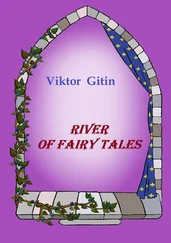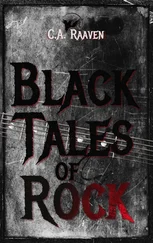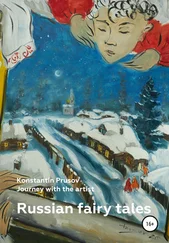Vasilii Nemirovich-Danchenko - Peasant Tales of Russia
Здесь есть возможность читать онлайн «Vasilii Nemirovich-Danchenko - Peasant Tales of Russia» — ознакомительный отрывок электронной книги совершенно бесплатно, а после прочтения отрывка купить полную версию. В некоторых случаях можно слушать аудио, скачать через торрент в формате fb2 и присутствует краткое содержание. Жанр: Русская классическая проза, на английском языке. Описание произведения, (предисловие) а так же отзывы посетителей доступны на портале библиотеки ЛибКат.
- Название:Peasant Tales of Russia
- Автор:
- Жанр:
- Год:неизвестен
- ISBN:нет данных
- Рейтинг книги:3 / 5. Голосов: 1
-
Избранное:Добавить в избранное
- Отзывы:
-
Ваша оценка:
- 60
- 1
- 2
- 3
- 4
- 5
Peasant Tales of Russia: краткое содержание, описание и аннотация
Предлагаем к чтению аннотацию, описание, краткое содержание или предисловие (зависит от того, что написал сам автор книги «Peasant Tales of Russia»). Если вы не нашли необходимую информацию о книге — напишите в комментариях, мы постараемся отыскать её.
Peasant Tales of Russia — читать онлайн ознакомительный отрывок
Ниже представлен текст книги, разбитый по страницам. Система сохранения места последней прочитанной страницы, позволяет с удобством читать онлайн бесплатно книгу «Peasant Tales of Russia», без необходимости каждый раз заново искать на чём Вы остановились. Поставьте закладку, и сможете в любой момент перейти на страницу, на которой закончили чтение.
Интервал:
Закладка:
Nemirovich-Danchenko Vasilii Ivanovich
Peasant Tales of Russia
THE DESERTED MINE
I
At the entrance of the Voskressensky mine stood a group of miners. All were quite silent.
It was still dark, for the autumn days begin late. Heavy grey clouds glided slowly over the sky, in which the first streaks of dawn were hardly visible. These clouds glided so low that they seemed to wish to lie on the earth in order to hide this black hole, this well-like orifice which was about to swallow up the miners one by one. The air was saturated with a cloud of damp dust, particles of which fell on the men's hair and faces. The miners wore leather jerkins, and small lamps, whose light flickered fitfully, hung at their belts. An imaginative person might have thought that they trembled with fear at having to descend into the heavy dense darkness of the mine.
"Listen, old man! You can never go down alone," said the young overseer to an old miner who was of tall stature, thin and withered. His long grey beard fell in disarray over his hollow chest, and his breath came and went with a thin whistling sound, as though the damp air of this dark morning found as much difficulty in entering as in leaving it. The features of the old miner's face were strongly marked, and his two black eyes burned in the depths of their sockets with a brilliant, almost fantastic light. This death's-head seemed almost buried from sight between two very high shoulders. When he walked, his back was arched, and his whole long body leaned forward, so that he seemed to be looking for something he had lost, or to be picking his steps very carefully. His feeble arms hung languidly by his side, and his legs tottered and gave way every moment under the weight of his body, slight as it was.
"You will never be able to descend the ladders! We will put you into the basket! Hullo! you fellows over there, come and help to start old Ivan!" the overseer called to the rest.
"Here we are, Father Ivan!" they cried, saying to each other jocosely, "Fancy his wishing to go down the ladders with us!"
The old miner turned towards them. It was a long time ago since he had been born in a mine about five versts distant which had been subsequently closed. His mother, who had lost her husband by the falling-in of one of the mine-galleries, continued to work in the same gallery after it had been repaired. Ivan had been born in the eternal darkness. His first cry had been drowned by the noise of blasting rocks, his first glance met nothing but the gloom of the subterranean gallery. He was hoisted to the surface of the ground in a large bucket full of ore. All the first impressions of his sad childhood were intimately connected with the mine where his mother, who was obliged to earn her living, always worked. As she had no one to whom to entrust the child, she took him with her, and he remained lying beside her, fixing his wide-open eyes on his mother's flickering lamp, while he sucked at his milk-bottle. It was this black hole which echoed to his laughter and his crying, especially to the latter. His mother, who was naturally taciturn, had scarcely time to caress her child, for she would have had to quit her work; when she heard the little one's sobs, she redoubled the blows of her pickaxe against the dark mass of coal, as though she wished by the noise they made to drown the feeble wailing of the infant.
It was in this mine that he grew and made his first experiments in walking; later on he began to explore, first the narrow passage where his mother worked at her daily task, then venturing into the other galleries of this subterranean kingdom. As his mind developed, a whole world of phantoms created by his imagination rose around him. All these masses of black earth with their blocks of metal, which had slumbered for centuries in the depths, seemed to him living beings, and all the mysterious muffled sounds which came one knew not whence, sounded in his ears like the groans of victims imprisoned by evil genii in gloomy caves. For him the water which filtered through the walls of the mine was a shower of tears, and that which trickled, yellow of tint, across the ore resembled flowing blood. The darkness was constantly traversed by vague and ever new apparitions, vanishing as soon as they appeared, which nevertheless left a trace of their passage on the child's impressionable mind.
When a miner's song reached him, deadened by distance, it seemed to him to issue from the depths of the rocks. By dint of practice, his sense of hearing had acquired a fine subtlety, and sometimes putting his ear to the rugged walls, he listened with so much attention that he could catch the faintest unknown and inexplicable sounds. It was perhaps only the wrathful murmur of some imprisoned spring, but for Ivan it was the groan of a human being struggling in his dungeon. All the objects round him – the ore, the rocks, the water – were animated with a life visible and comprehensible to him alone. These things were not for him, simple parts of inanimate nature, but creatures with souls, full of life, similar to himself, watching and listening to him as he watched and listened to them.
Later on he made friends with an old man. He was a miner of a somewhat sombre disposition, but his eyes always grew moist when the child ran towards him. He would lay his wrinkled hand, hard as iron, tenderly on the head of the little one, and, as he rested, tell him how one day our Lord Jesus Christ had descended to the depths of this subterranean kingdom, and since then remained there with the miners. "Jesus is in the midst of us, I tell you," the old man would say dreamily, peering intently into the darkness, as though his half-blind eyes could really distinguish the divine Saviour there. As long as he was a child, Ivan saw Him also, and seeing Him feared Him, because he knew that Jesus does not love evil deeds and dark thoughts. Jesus is everywhere at once; He has thousands of eyes at His disposal; He sees and knows the slightest movements of men's hearts.
One day when the child was sitting on the old miner's knees, they heard far off in the direction where Ivan's mother was working a dull shock – a noise like a sigh escaping from the breast of Mother Earth herself. The shock re-echoed in all the mine-shafts and smallest recesses of all the galleries. The earth fell in in several places.
"Save us, Lord!" cried the old man, rising quickly. "Pray to God, little one. A child's prayer avails much with Him."
Little Ivan knelt down, and prayed without knowing why or for what. All his prayer consisted in repeating, "Kind Jesus!.. Good Jesus!.. Dear old Jesus!" Since for him goodness was personified in the old miner, and as on the other hand Jesus was the very incarnation of goodness, it followed that Jesus must be old, very old. It was thus that the child imagined Him, and under this aspect that he sometimes saw Him standing in the darkness of the mine.
The subterranean shocks re-echoed to a great distance and did not cease till they passed beyond the boundaries of the mine. Then only a vague vibration remained in the air like the presentiment of a great calamity. The old miner turned in the direction where Ivan's mother had been working. He walked with uncertain steps and then returned hesitatingly towards the child. When they reached the gallery they found it narrower and contracted above where the earth had sunk. Presently they came to a point where it shrank to a narrow hole. The old man and the child crawled through it with difficulty. Soon, fortunately, they could stand upright. A few steps more and the old man abruptly fell on his knees.
The place where Ivan's mother had been working no longer existed. The child and the old man were confronted by a huge mass of damp earth. Its dampness was constantly increasing, for it was traversed by a thread of water from a spring which had suddenly been liberated, one knew not how, from its long imprisonment. From underneath this damp mass projected the feet of Ivan's mother. The child rushed forward, seized the coarse boots which she wore and tugged at them, but in vain; the earth which lay on his mother guarded its prey well.
Читать дальшеИнтервал:
Закладка:
Похожие книги на «Peasant Tales of Russia»
Представляем Вашему вниманию похожие книги на «Peasant Tales of Russia» списком для выбора. Мы отобрали схожую по названию и смыслу литературу в надежде предоставить читателям больше вариантов отыскать новые, интересные, ещё непрочитанные произведения.
Обсуждение, отзывы о книге «Peasant Tales of Russia» и просто собственные мнения читателей. Оставьте ваши комментарии, напишите, что Вы думаете о произведении, его смысле или главных героях. Укажите что конкретно понравилось, а что нет, и почему Вы так считаете.












